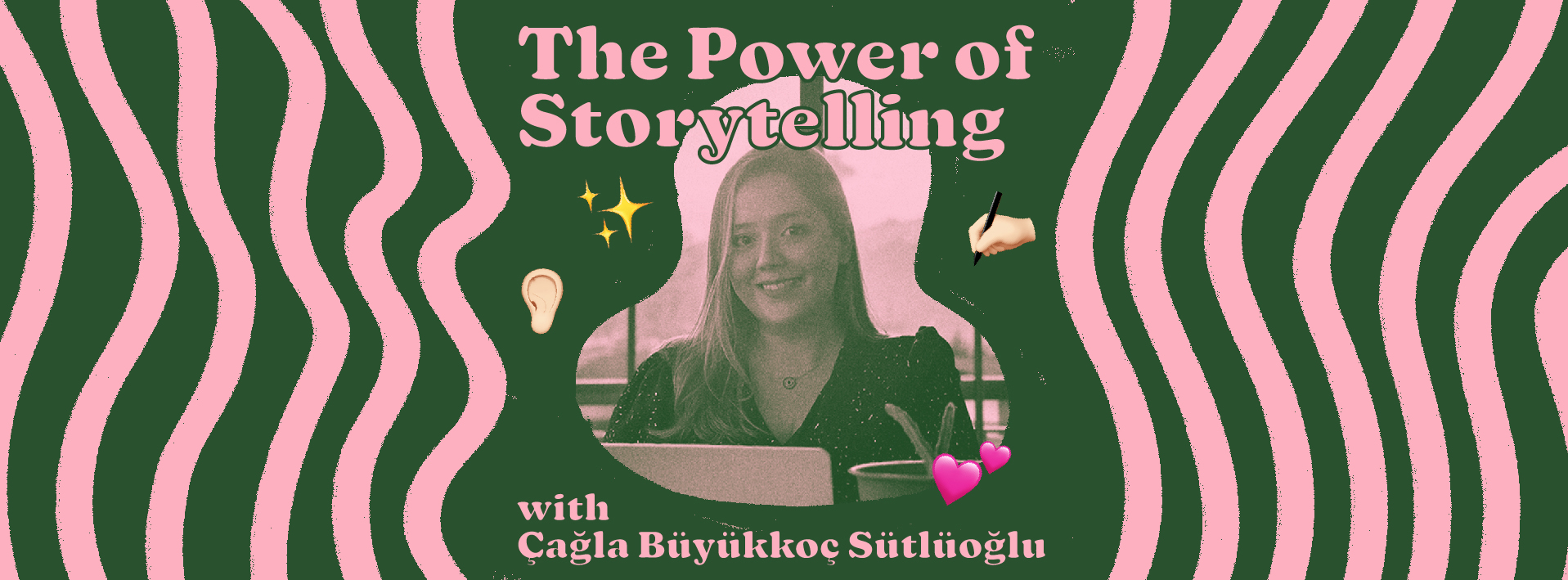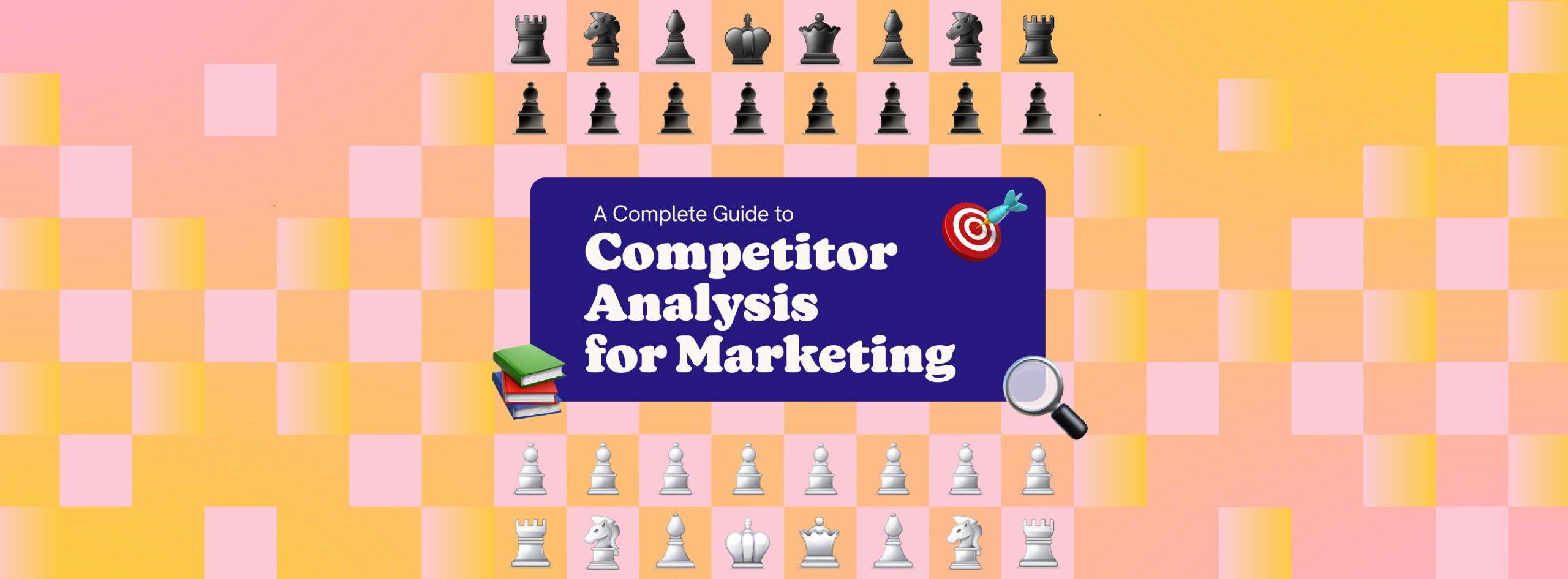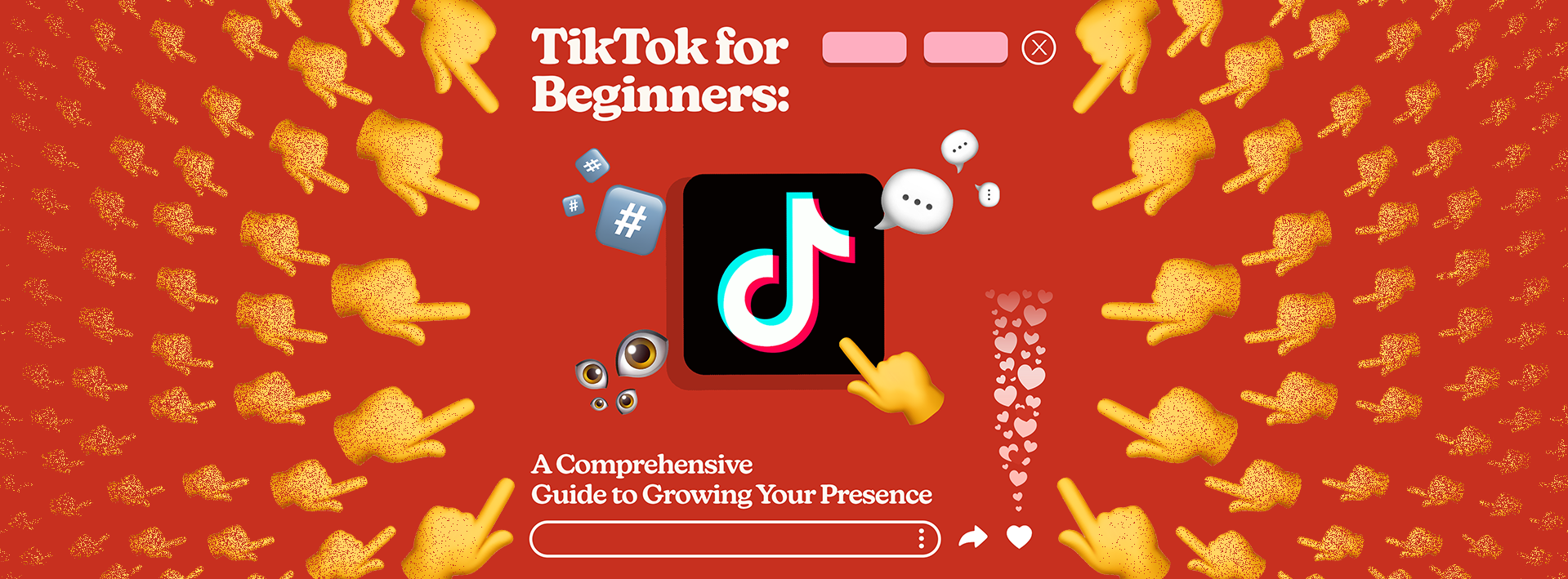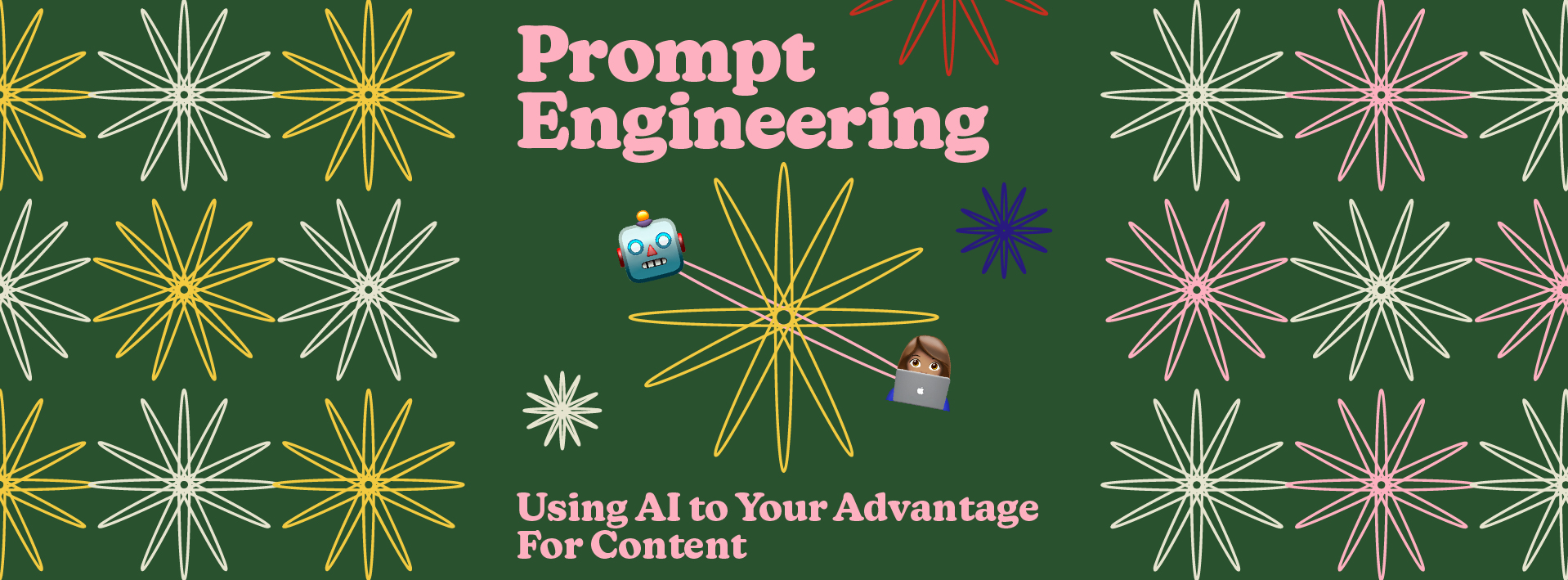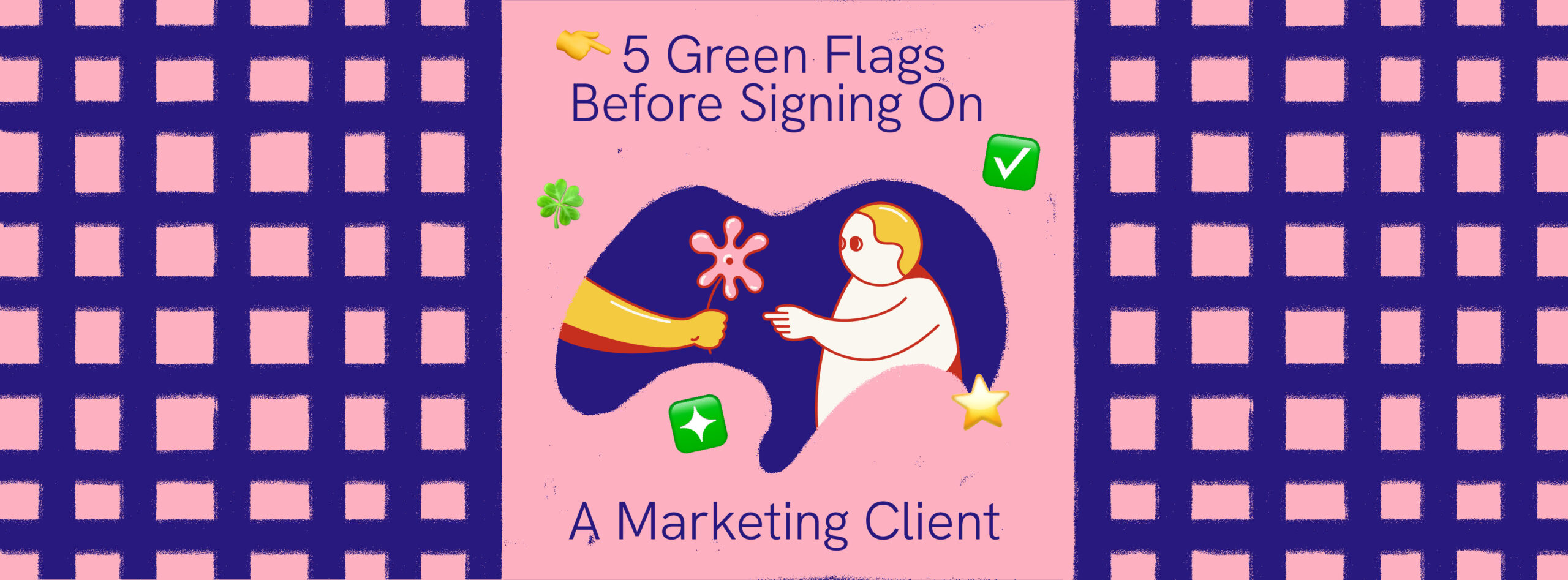This year was filled to the brim with achievements, excitements, new ventures and more for the founder of our agency: Çağla Büyükkoç Sütlüoğlu. We watched as she conquered France after being chosen to be among the 16 women in the See It Be It Cohort for Cannes Lions: The International Festival of Creativity 2023. We thrived as Walrus under her leadership, and we’re sure you’re just as curious as us when it comes to how she does it all.
I wanted to talk about storytelling with Çağla, as that is the crux of everything she does; it’s her passion, her specialty and her key to success in digital marketing. Her words carry wisdom for both brands and storytellers; so I advise you to continue reading and witness her inspiring journey.
When/where did your passion for stories begin?
My parents used to work very long hours. They were both in finance and banking back when that was “the” career route to take (similar to marketing in 00s, software in 10s, AI in 20s). Keen on spending quality time with me in the little time we had, they would read me the most incredible stories before bed. The kind of stories that I built passion for later in life are not necessarily prose: TV series, well-written ads, fantasy role-playing video games, and beyond that, moments I witnessed in real life and people I met throughout the journey, have all been fascinating stories to me. The story never stops, it diverges into forking paths.
How did you manage to turn your passion into a career? Did it happen progressively, or did it always seem like a path you were meant to follow?
I had a vague idea that I was meant to be a storyteller or a creative, but that felt too good to be true, so I stuck to academia for a long while. There was a lot of tension between those two paths in my life until just a few years ago. When there was a mix-up in the admissions process of the Master’s program I applied to, I came to terms with the fact that I was not accepted into one of my dream programs, and my academia dream was over. I took a job at a creative agency and spent 2 months there falling in love with how much creativity could go into a corporate job–it was truly a revelation to discover I could make money by writing corporate poems (which is something I did for a long time and I just loved doing it). Around the time I accepted my fate, my acceptance letter came. After a long will-they-won’t-they, I simply realized I felt like I should be in academia, but what I wanted to do was definitely something else. Walrus is that something else.
We hear a lot about the importance of storytelling for marketing, more specifically branding. What makes it so? What does it change?
This is actually what my Master’s thesis is about: Storytelling to create new realities from scratch on social media. So I could answer this question with 50,000 words, but instead I’ll just share an interesting tidbit from my work. It is scientifically proven that a traditional storytelling format, like the hero’s journey, triggers the release of neurochemicals like oxytocin that sharpen our focus, connect us on an emotional level, and overall, makes us feel good. Brands that tell a story can connect with their audiences on a much deeper level because they literally make them, quite simply, feel good.
How do you get started on crafting a “story” for a brand? What kind of materials or input do you need from a brand before starting?
This is one of my favorite steps of this whole journey (imagining where the story begins) and thanks to the amazing team at Walrus, this is now a team sport. It usually goes like this:
- I share the name of the brand with the whole team and we do a veeeery deep dive. We stalk the brand like it is our middle school ex, and learn everything that went on with it. We prepare some questions, draft some ideas, and hop on a discovery call with the brand.
- During the discovery call, we hear the story from the brand’s side, and understand where they want to go. We read the vibes, ask our questions, and shoot some ideas.
- My team members all have different ways they go after this, but personally, I stop working on this completely for 2-3 days. I let all that info simmer in my head, because even if I try not to think about it, I know I will think about it in the weirdest of times. Full disclosure, this is also when I start getting super stressed out about not actively working on the brand–but I’ve now come to accept that this too is a part of the process.
- After these few days we come together with my team and find that one idea that excites us all. The “it” idea. Once we have it, we run wild with it.
As well as storytelling, we know a lot of brands demand content that can go viral. Do you think a solid brand identity, supported by storytelling, plays a role in producing relatable content?
There is a whole lot to unpack in this question: Going viral. Brand identity. Storytelling. Relatable content. To answer shortly, I don’t think a brand can go viral if its content is not relatable or if it does not have a moving story in its roots. We talk a lot about stories but do not specify how we integrate them into brands. A story can come in many forms: Duolingo’s green owl mascot on TikTok can make you smile so much that it becomes a part of your own story, Dunkin’s savage social media admin on Twitter has the sickest burns and you can’t help but immediately feel like their bestie, or Lemme’s je-ne-sais-quoi-but-make-it-fancy vibes built on the story of its founder, Kourtney Kardashian Barker making you feel all glowy and new. It’s about the feelings of inclusion these brands trigger in the target audience, which is a natural outcome of a storytelling-based brand strategy.
Now, a question for those interested in having a career in marketing: How do you get started in storytelling? What are the key points you would say in doing a good job as a storyteller?
If I could go back 12 years to when I first started university, here is a step by step list of what I would do to break into this industry. Doing a good job is a whole other story, but it usually comes naturally after getting started:
- In the first two years of college, I’d find brands I vibed with in 2 categories: Agency & corporate. Create an Excel for both, go on a deep LinkedIn dive, choose 100 companies for each category, determine decision makers for these companies, find their email addresses or message them directly on LinkedIn.
- Before that, I would prepare a CV and a cover letter and I would have it checked by at least 5 people I trusted. Not only my peers but mentors, professors, or simply people who do this kind of thing pro bono (which is something I plan to do very shortly!).
- To be realized, I would definitely build up my LinkedIn persona and let go of the idea of cringe.
- I would also create a Medium profile to showcase my writing skills, and publish in multiple languages to reassure the person who’ll give me my first job that my language skills are amazing.
- I would make ChatGPT my best friend–but back then we had lame chatbots and Jabberwocky only.
- And finally, I’d find a mentor. It took me many years to realize mentor’s not just a buzzword. Have someone who has been there advise you. WhatsApp them all your questions.
All of this is written with the assumption that the person that will be getting started in storytelling/marketing is actually interested in stories… That’s obviously step 1: Live & breathe stories, in any shape and form.
You’ve also taken a brave step in founding your own agency when you decided you could create a better workplace both for yourself and any creative interested in a career in marketing. Any advice for aspiring CEOs?
The most important takeaway from my entrepreneurial journey would be this: Do not try to do everything all at once when you’re just taking off. For me, I started doing some freelance work here and there, then hired some friends for project-based jobs which helped me navigate how to run a creative team, and then hired some of these friends full-time when it became more economically reasonable to do so. I did not have someone create an incredible brand identity pack for me (until Zeynep created Walrus), so one day I came home, opened Canva, and created a logo (it was terrible but it was something). Typed out the deck in a few hours, sent it to friends, and watched the whole thing grow. There is a lot of effort and a lot of sleepless nights, and if I could go back 2 years and start all over again, I would sleep more and relax more… But that’s easy to say now. Have a strong support system if possible and prioritize your mental wellbeing above all. And I guess the most important thing is to choose yourself on a daily basis, because it gets real dark real quick if you don’t. I would try to practice mindfulness more, because in the moments I felt like I was an impostor, I was actually someone founding their own business, not someone play-acting being an entrepreneur as I thought most of the time. I would apologize less and say “no” more. I would delegate more and micromanage less. But then again, if it meant being where I am right now, I would do it all over again.
Walrus is being shaped around the same passion for stories and meaningful connections as Çağla. So, if you’re interested in carrying your digital marketing to the next level by taking intentional steps in creative content, drop us an email at [email protected] and let’s have a chat!
